Actress Jenna Ortega Says She Deleted Twitter After Seeing Fake Explicit Images of Herself ‘as a Child’
Beetlejuice Beetlejuice star Jenna Ortega said she deleted her Twitter account after receiving explicit AI images of herself.

Beetlejuice Beetlejuice star Jenna Ortega said she deleted her Twitter account after receiving explicit AI images of herself.

The San Francisco City Attorney’s office has launched a lawsuit against 16 of the most visited AI-powered “undressing” websites, alleging violations of state and federal laws prohibiting revenge porn, deepfake pornography, and child pornography.

Despite recent policy updates, Google Search continues to display promoted results for “nudify” AI apps that generate nonconsensual deepfake porn, raising concerns about the tech giant’s ability to combat harmful AI-powered content.

The anti-Deepfake porn bill, otherwise known as the Disrupt Explicit Forged Images and Non-Consensual Edits (DEFIANCE) Act, passed the U.S. Senate unanimously on Thursday with 100 votes.

Meta’s Oversight Board, known as the social media giant’s “supreme court,” has concluded that Instagram should have removed AI deepfake pornography made of a Indian public figure, highlighting significant gaps in the platform’s content moderation policies and practices.
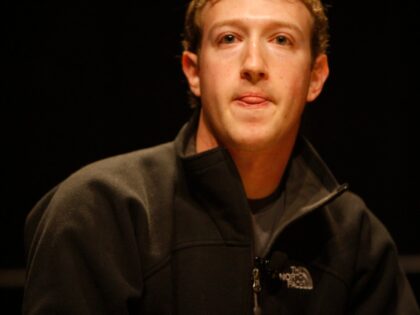
On Wednesday’s broadcast of CNBC’s “Squawk Box,” Senate Intelligence Committee Chairman Sen. Mark Warner (D-VA) said he is concerned about foreign election interference in the form of cyberattacks, spreading conspiracy theories, setting up fake events to incite violence or hiring
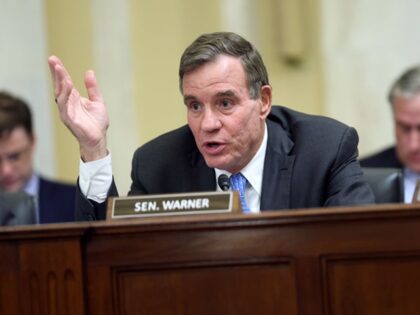
In response to the growing issue of boys using AI apps to create and share sexually explicit images of their female classmates, state legislators across the United States are introducing bills to protect minors from this new form of exploitation. Meanwhile, Silicon Valley continues to make billions with the very AI models boys are exploiting.

An investigation has been launched into allegations of inappropriate digital photos being created and shared in a California school.

The Federal Trade Commission (FTC) has awarded prizes to four organizations for developing technologies that can distinguish between authentic human speech and audio generated by AI, as concerns grow over the influence of deepfakes on elections and consumer scams.

Italian Prime Minister Giorgia Meloni is seeking damages over AI-generated deepfake pornography that superimposes her face onto the body of a naked woman.

NewsGuard, the purportedly impartial media rating service that has created a blacklist of disfavored news organizations, is ramping up efforts to prevent AI from spreading fake content that could influence the upcoming U.S. presidential election.

The misuse of AI has landed a group of middle school students in serious trouble after they created and disseminated explicit images of their classmates. Five students from a Beverly Hills, California, middle school have reportedly been expelled after creating AI deep fake porn of more than a dozen classmates.

AI giant OpenAI has revealed its newest creation, an AI system named Sora that can generate realistic videos from text descriptions. As AI-generated deepfake videos already cause problems online ranging from fake porn to realistic scam calls, the advent of easy to create video comes with the potential for trouble.
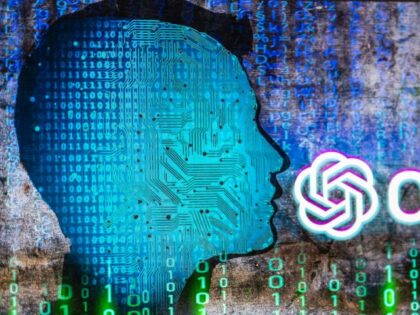
Major technology companies including Mark Zuckerberg’s Meta, OpenAI, Google and China’s TikTok are signing an agreement aimed at curbing the malicious use of artificial intelligence to meddle in elections.

A new AI-generated image trend on social media, known as #DignifAI, has turned the tables on deepfake porn by creating images that add clothing to photos of scantily clad women in order to make them appear more modest. The trend has expanded to men as well, removing face tattoos and generating images of celebrities as clean cut members of society.

Mark Zuckerberg’s Meta will soon begin detecting and labeling AI-generated images on Facebook, Instagram and Threads, as well as requiring users to note when they post realistic AI video or audio as part of its efforts to prevent potential misinformation ahead of upcoming elections.
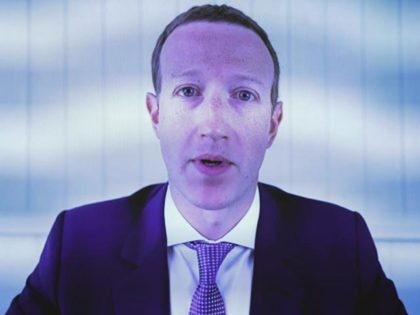
A finance worker at a leading multinational company was reportedly deceived into transferring $25 million to fraudsters using advanced deepfake technology to impersonate the firm’s chief financial officer and other company executives during a Zoom video meeting.

In a recent congressional hearing on artificial intelligence and intellectual property, country music singer and Yellowstone star Lainey Wilson shared her unsettling experience of having her voice cloned by AI technologies.

Elon Musk’s social media platform X, formerly known as Twitter, is taking steps to strengthen its notorious “trust and safety” team, which was responsible for widespread censorship of conservatives under prior management, following the circulation of explicit AI-generated images of pop star Taylor Swift on the platform.
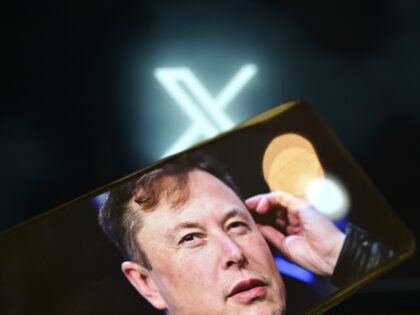
A recent report has uncovered a concerning trend in the development of artificial intelligence image generators, revealing the use of explicit photos of children in their training datasets.

Vladimir Putin took a question from an AI-generated version of himself in one of the more bizarre moments of his year-end press conference.

There is an ever-increasing rise of deepfake porn, which now makes up 98 percent of all deepfake images, according to an expert. As authorities say there is nothing they can do about deepfakes, the vast majority of AI-generated pornography targets women.

AI tools that can be used to create pornographic images are easy to find online and are even pushed by accounts on Google’s YouTube and China’s TikTok.

Civitai, an online marketplace for AI models, has recently introduced a controversial feature allowing users to post “bounties” for creating deepfake images of real people, including normal people without significant public presence. Creators earn money for completing the bounties, which may be used for deepfake porn or other nefarious purposes.

A New Jersey high school is grappling with the fallout from a scandal involving AI-generated explicit images of female students circulated by their male peers. It is just the latest example of the disastrous consequences of unrestrained AI on American culture.

A mysterious account on TikTok caused a good deal of confusion in the already chaotic nation of Sudan by using artificial intelligence (A.I.) to create convincing fake video clips of former dictator Omar al-Bashir, who was deposed in 2019.
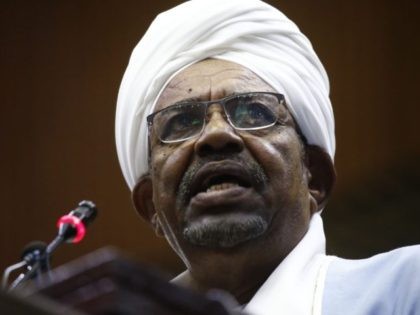
Taylor Swift, Emma Watson, and Natalie Portman are quite popular on celebrity deep fake porn sites.

The FBI has issued a warning about a surge in extortion schemes involving AI-generated explicit content, commonly referred to as “deepfake sextortion.” According to law enforcement officials, bad actors produce fake explicit content of their targets, then demand money to remove them from the internet.
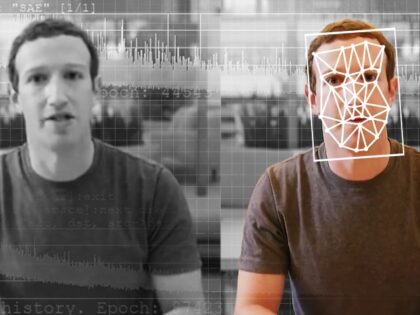
Russia claims a television broadcast showing Vladimir Putin declaring martial law is actually an A.I.-generated fake deployed by hackers.

A tool developed to spot “misinformation” by software development company Adobe in collaboration with the New York Times and Twitter is being added to new Nikon and Leica digital cameras by default.

Police in Turkey have arrested three people and identified 17 suspects believed to be involved in an alleged “Israeli porn” video doctored to feature the likeness of former presidential candidate Muharrem İnce.
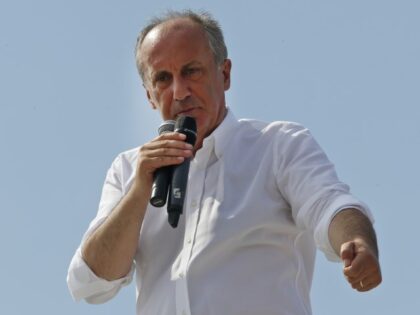
Breaking with others in the music industry, singer and former Elon Musk girlfriend Grimes has okayed the use of her voice in AI-generated songs, promising 50 percent royalties to anyone who achieves success with an AI-generated song using her voice.

Midjourney, which along with Stability AI’s Stable Diffusion and Open AI’s DALL-E is one of the leading AI image generating services, has shut down its free edition as it attempts to clamp down on the spread of deepfake images.

Hundreds of sexual deepfake app advertisements featuring actresses Emma Watson and Scarlett Johansson ran on Facebook and Instagram over the last few days. The Masters of the Universe apparently had no issue with advertising the technology used to make fake porn of celebrities — and increasingly, normal people too.

Hollywood star Keanu Reeves says deepfake digital face edits are “scary,” and confirmed that his film contracts ban digital edits to his acting. “It’s a system of control and manipulation,” the actor said of artificial intelligence (AI) technology.

Bruce Willis, who has stepped away from acting after a diagnosis of aphasia, recently became the first celebrity to sell the rights to his likeness to a deepfake firm, so that a “digital twin” of himself can be created for onscreen usage.

To achieve a PG-13 rating for its new low-budget thriller Fall, Lionsgate turned to deepfake technology to delete more than 30 uses of the f-word.

In a recent report, the FBI says that it has received multiple complaints of people using stolen information and AI-generated deepfake videos and voices to apply to remote tech jobs.

In a recent article, Wired magazine notes that as deepfake technology progresses in sophistication and ease of application, many mainstream businesses are now beginning to adopt the technology that up to this point has been infamously used to generate fake and pornographic videos of celebrities.
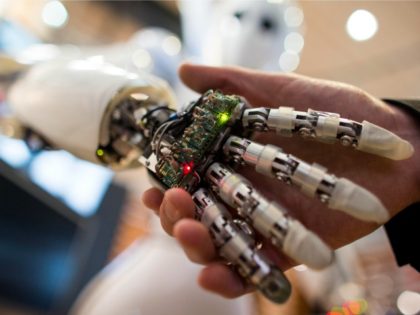
Warner Bros. is reportedly using an interactive deepfake program to allow users to insert themselves into the studio’s latest promo for the new movie Reminiscence. AI-generated deepfake videos are often good enough to fool the average person, making famous people appear to say things they never said, or putting them in unusual situations.
